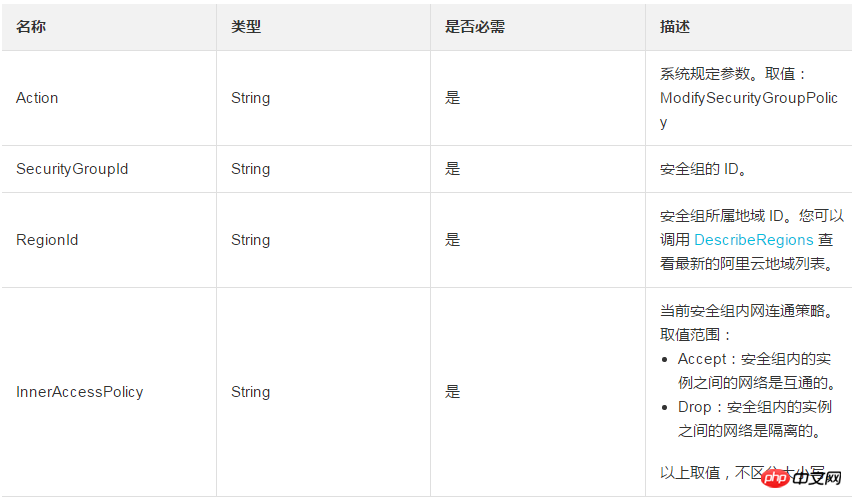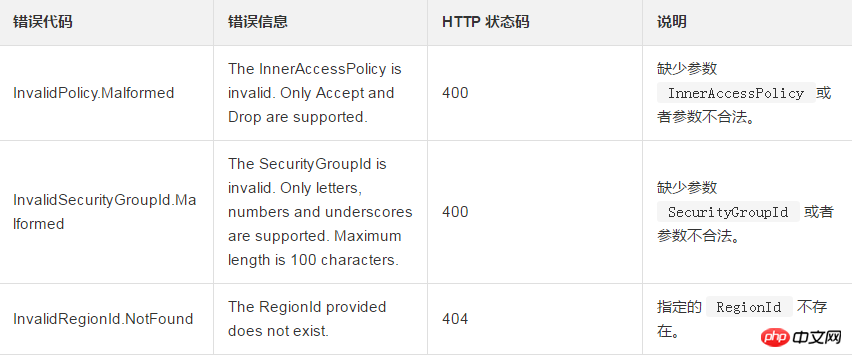Home >Operation and Maintenance >Linux Operation and Maintenance >How to modify the security group intranet connectivity policy
How to modify the security group intranet connectivity policy
- 坏嘻嘻Original
- 2018-09-25 14:53:032780browse
The content of this article is about how to modify the intranet connection policy of the security group. It has certain reference value. Friends in need can refer to it. I hope it will be helpful to you.
ModifySecurityGroupPolicy
Description
When calling this interface, you need to pay attention to:
The parameter InnerAccessPolicy When the value is Accept, the networks between instances in the security group are interconnected. At this time, the Accept priority principle is followed, that is, the network between instances in the security group remains interconnected and is not affected by user-defined security group rules.
When the value of parameter InnerAccessPolicy is Drop, the network between instances in the security group is isolated. At this time, follow the priority principle of user-defined security group rules. That is, although the networks between instances in the security group are isolated, you can customize the security group rules to change the intranet status. For example, you can use AuthorizeSecurityGroup to enable security. The two ECS instances in the group are interconnected.
You can query the intranet connectivity policy of the current security group through DescribeSecurityGroupAttribute.
Request parameters

##Return parameters
are all public return parameters. See Public Parameters.Example
Request example
https://ecs.aliyuncs.com/?Action=ModifySecurityGroupPolicy &RegionId=cn-hangzhou &SecurityGroupId=sg-1133aa &InnerAccessPolicy=Drop &<公共请求参数>
Return example
XML format
<ModifySecurityGroupPolicyResponse>
<RequestId>CEF72CEB-54B6-4AE8-B225-F876xxxxxxxx</RequestId>
</ModifySecurityGroupPolicyResponse>
JSON format
{
"RequestId": "CEF72CEB-54B6-4AE8-B225-F876FF7BA984"
}
Error code
The following are error codes unique to this interface. For more error codes, please visit the API Error Center.
The above is the detailed content of How to modify the security group intranet connectivity policy. For more information, please follow other related articles on the PHP Chinese website!

